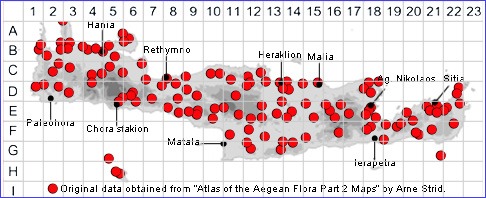SPECIES DESCRIPTION
MEDICAGO POLYMORPHA
Family and Genus:- See- LEGUMINOSAE/Subgen. CYMATIUM
Common Names:- Toothed medick
Homotypic Synonyms:- Medica polymorpha, Medicago denticulata subsp.
polymorpha, Medicago hispida subsp. polymorpha, Medicago polycarpa
subsp. polymorpha.
Meaning:- Medicago (Gr) Median-grass, A name used by the Greek physician
and botanist Dioscorides, from a Persian name for lucerne, or medick.
Polymorpha (L) Variable, of many forms.
General description:- Low prostrate to spreading, hairy or hairless annual.
Stems:-
1) 10-40 cm.prostrate to ascending,
Leaves:-
1) Leaflets, obovate to triangular, glabrous above, sometimes thinly pilose beneath,
serrate at the apex.
2) Stipules, laciniate.
Flowers:-
1) Peduncles, filiform, shorter than or equalling the petiole of the subtending leaf.
2) Inflorescence, 2-8-flowered, usually several fruits developing.
3) Corolla, 4-7 mm, pale yellow.
Fruit:-
1) Legume, discoid to shortly cylindrical, usually 5-6 mm in diam. (not including
spines), glabrous, with 2-5 rather lax coils; marginal and submarginal veins well
developed, separated by a groove; surface of the coils with a conspicuous
network of raised veins; spines c. 2 mm, patent, often uncinate.
Key features:-
1) Leaflets, never with a dark spot.
2) Legume, discoid to shortly cylindrical, usually 5-6 mm in diam. with 2-5 rather
lax coils.
Habitat:- Sandy and saline coastal habitats, cultivated and fallow fields, olive
groves, hedges, pastures, wasteground. 0-800(-1300) m.
Distribution:- Widespread throughout the Mediterranean area and SW Asia.
Widespread on Crete.
Flowering time:- Mar-July.
Photos by:- Steve Lenton

